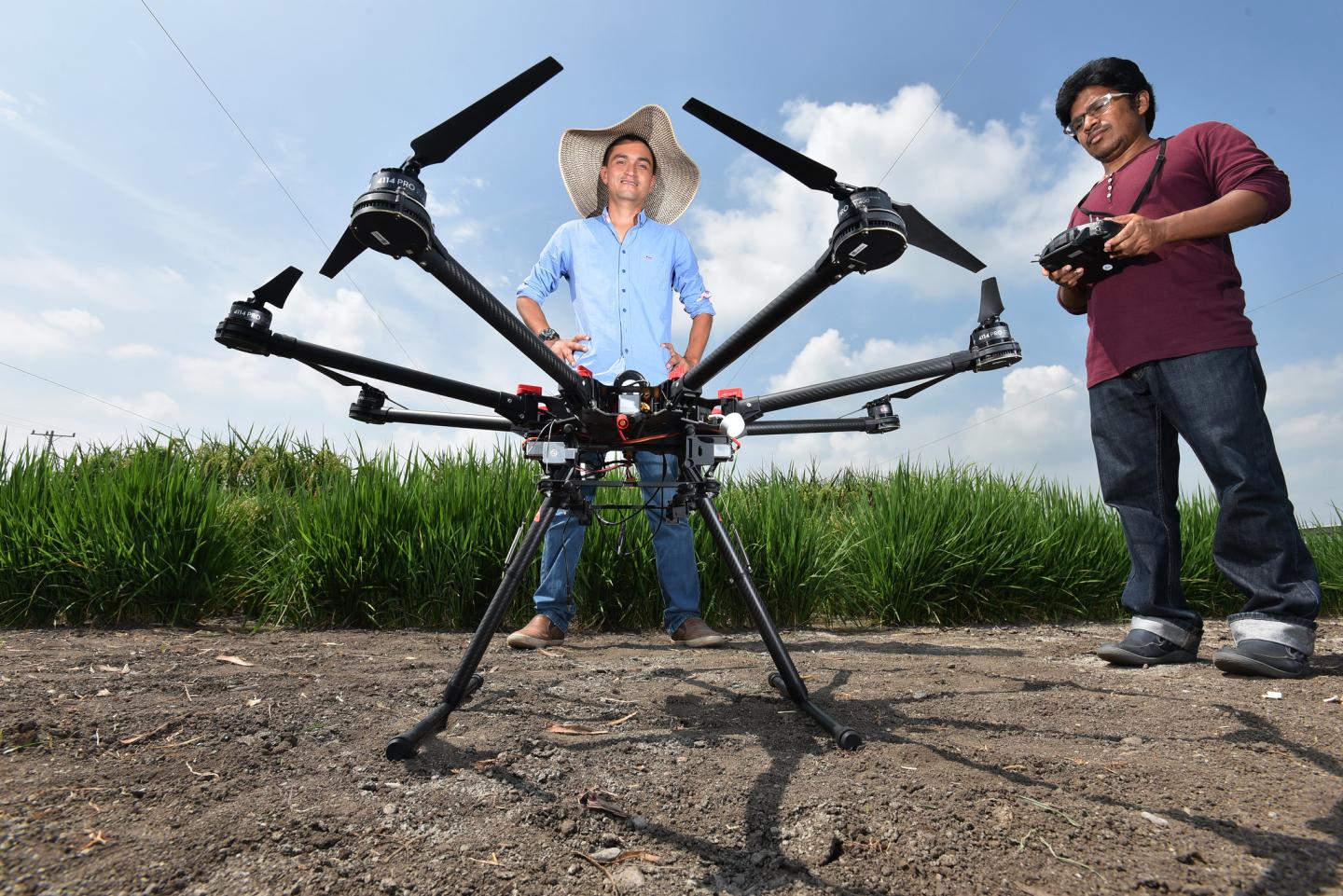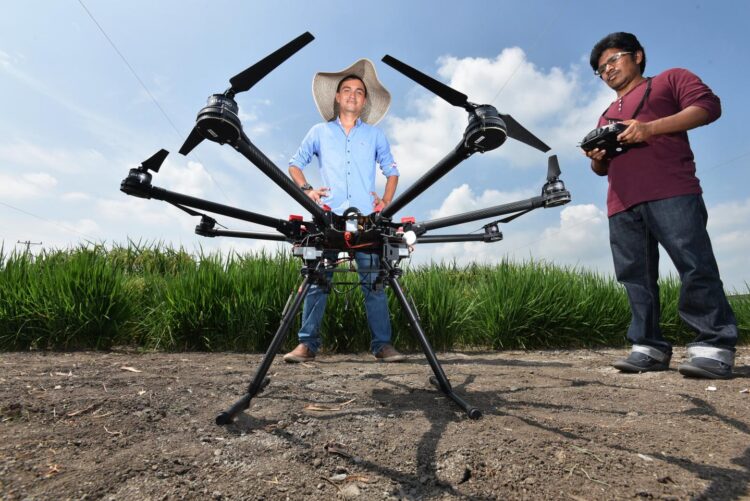Using machine learning, scientists can analyze drone images shot above the soil to understand how root crops respond to drought or heat beneath the soil. The Pheno-i platform relays real-time data to scientists, to breed more climate-resilient crops

Credit: Neil Palmer / CIAT
Root crops like cassava, carrots and potatoes are notoriously good at hiding disease or deficiencies which might affect their growth. While leaves may look green and healthy, farmers can face nasty surprises when they go to harvest their crops.
This also poses problems for plant breeders, who have to wait months or years before knowing how crops respond to drought or temperature changes. Not knowing what nutrients or growing conditions the crop needs early on also hinder crop productivity.
New research using machine learning and to help predict root growth and health with aboveground imagery was published June 14 in Plant Methods.
“One of the great mysteries for plant breeders is whether what is happening above the ground is the same as what’s happening below,” said Michael Selvaraj, a co-author from Alliance of Bioversity International and the CIAT.
“That poses a big problem for all scientists. You need a lot of data: plant canopy, height, other physical features that take a lot of time and energy, and multiple trials, to capture what is really going on beneath the ground and how healthy the crop really is,” said Selvaraj, a crop physiologist.
While drones are getting cheaper, and hardware for capturing physical images through crop trials has become easier, a major bottleneck has been in analyzing vast quantities of visual information. And, distilling it into useful data that breeders can make use of.
Using drone images, the Pheno-i platform can now merge data from thousands of high-resolution images, analyzing them through machine learning to produce a spreadsheet. This shows scientists exactly how plants are responding to stimuli in the field in real-time.
Using the technology, breeders can now respond immediately, applying fertilizer if a particular nutrient is lacking, or water. The data also allows scientists to quickly discover which crops are more resistant to climate shocks, so they can advise farmers to grow more drought or heat-resilient varieties.
“We’re helping breeders to select the best root crop varieties more quickly, so they can breed higher-yielding, more climate-smart varieties for farmers,” said Gomez Selvaraj.
“The drone is just the hardware device, but when linked with this precise and rapid analytics platform, we can provide useful and actionable data to accelerate crop productivity.”
The technology holds promise for other crops.
“Automated image analytical software and machine learning models developed from this study is promising and could be applied to other crops than cassava to accelerate digital phenotyping work in the alliance research framework,” said Joe Tohme, the Alliance research director for Crops for Nutrition and Health.
###
About the Alliance
The Alliance of Bioversity International and the International Center for Tropical Agriculture (CIAT) delivers research-based solutions that harness agricultural biodiversity and sustainably transform food systems to improve people’s lives. Alliance solutions address the global crises of malnutrition, climate change, biodiversity loss, and environmental degradation. The Alliance is part of CGIAR, a global research partnership for a food-secure future. http://www.
Media Contact
Sean Mattson
[email protected]
Related Journal Article
http://dx.





